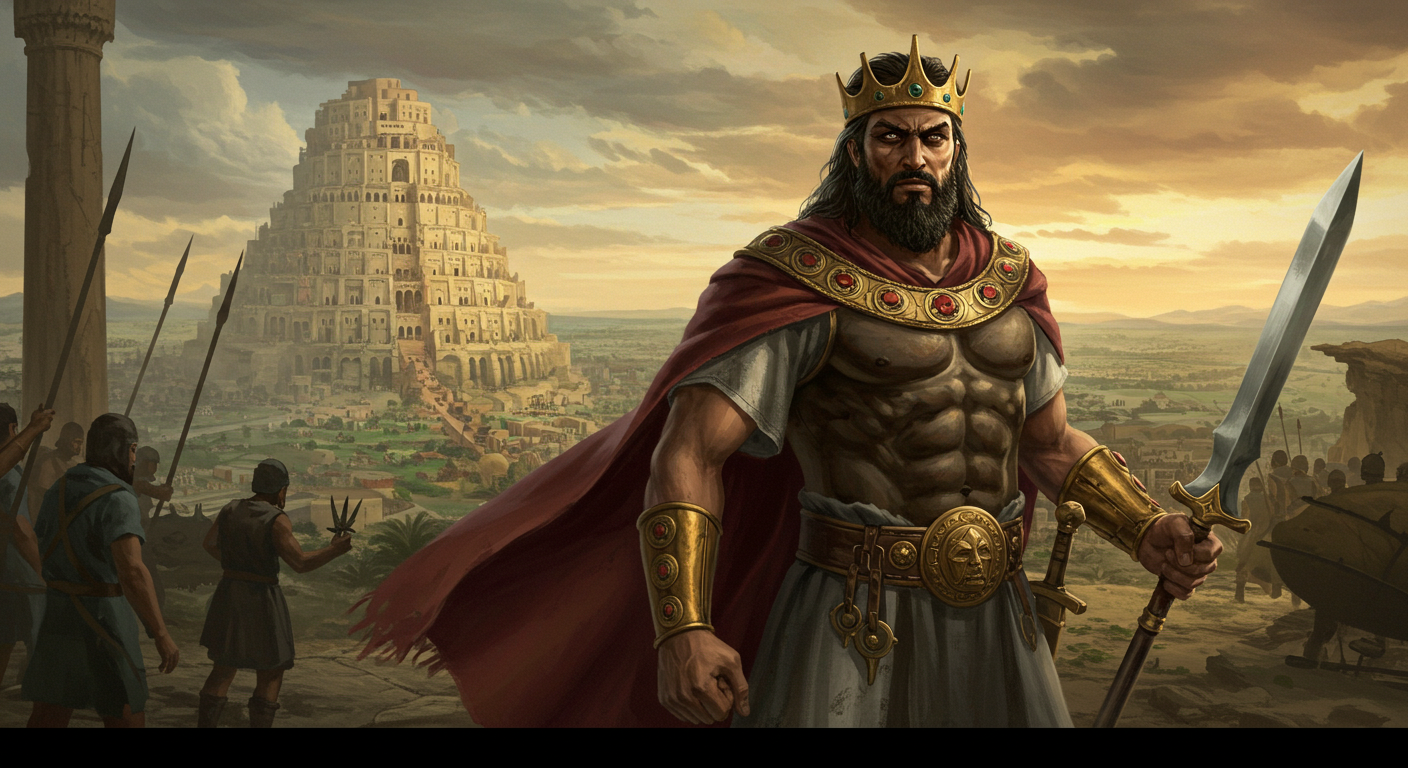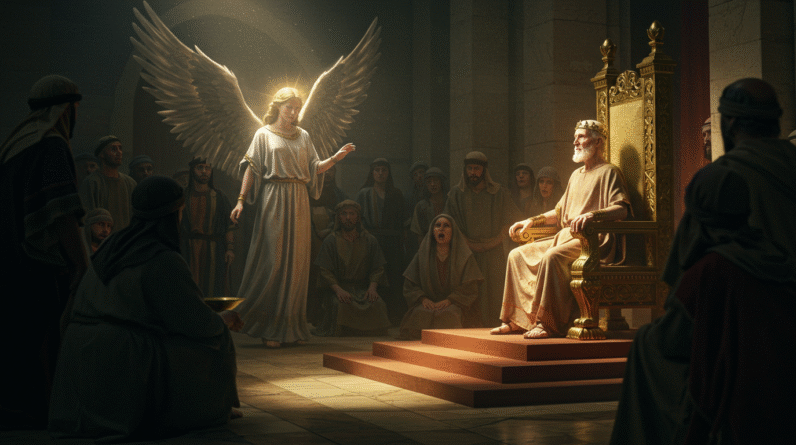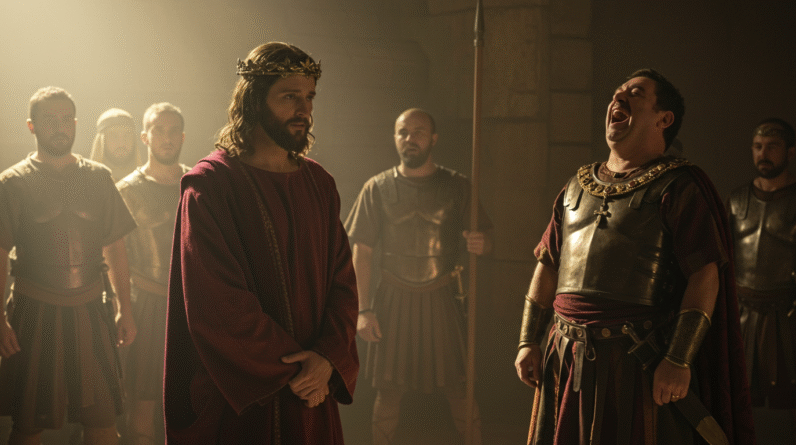Explore Nimrod’s defiance and its divine consequences. Uncover lessons from this Old Testament figure, whose ambition clashed with God’s will, leading to intriguing outcomes.
Nimrod – The Enemy of God in the Old Testament

Introduction
Have you ever wondered why certain individuals in the biblical narratives stand starkly against God? Among these figures, Nimrod emerges as a fascinating character. Known for his might and defiance, Nimrod’s story is intricately woven into the tapestry of the Old Testament. But why was Nimrod considered an enemy of God? This article delves deep into Nimrod’s life, his opposition to God, and the ensuing consequences, underscoring the lessons we can glean from his life.
Who Was Nimrod?
Nimrod’s identity is as compelling as it is shrouded in mystery. Described as a mighty hunter before the Lord in the Book of Genesis, Nimrod is often seen as one of the earliest empire builders in biblical history. He is credited with the establishment of several influential cities, including Babel, Erech, and Akkad in the land of Shinar, later known as Babylon (Genesis 10:8-10). His exploits were legendary, marking him as a significant figure during the post-flood era.
In the biblical context, Nimrod stands out primarily during a period of human history characterized by burgeoning civilizations and shifting allegiances. As a great-grandson of Noah through Ham, Nimrod falls within the early generations of postdiluvian peoples, those who repopulated the earth following the cataclysmic flood. His deeds and the cities he established form an integral part of Old Testament narratives, symbolizing humanity’s efforts at self-aggrandizement and rebellion against divine authority.
Nimrod’s Opposition to God
The reasons for Nimrod’s opposition to God are multifaceted, stemming largely from pride and the pursuit of power. As a formidable leader, Nimrod’s quest for dominance often clashed with divine expectations. His role in the construction of Babel is particularly noteworthy, with the Tower of Babel serving as an emblem of humanity’s arrogance and attempt to reach divine heights without God (Genesis 11:4). By seeking to make a name for themselves independent of divine approval, Nimrod and his followers defied God’s mandate to spread out and fill the earth.
Nimrod’s most significant act of defiance was rallying people around the Tower of Babel – an endeavor that directly contravened God’s will. This construction was not merely about architecture but represented a deeper ideological conflict between human ambition and divine instruction. It is this venture that epitomizes Nimrod’s opposition to God, where the desires for renown and centralization clashed with divine plans for dispersion and diversification (Genesis 11:5-8).
The Consequences of Their Opposition
Nimrod’s defiance and leadership in building Babel drew divine judgment. The judgment came not as fiery wrath but as a calculated decision to confuse the language of the people, leading to disunity and scattering across the earth (Genesis 11:9). This dispersal effectively halted Nimrod’s aspirations of creating a centralized power under his rule, showing that human efforts contrary to divine will ultimately fail.
The biblical teaching here is profound. Through Nimrod’s example, we learn that human pride and defiance have their limits when placed against the divine purpose. His story serves as a reminder of the transient nature of earthly power and the futility of opposing God’s overarching plan. While Nimrod did not face an individual “comeuppance” like other biblical antagonists, the scattering of peoples underscores a broader divine intervention to fulfill God’s ultimate aims.
Nimrod in the Larger Biblical Narrative
Despite his rebellious ways, Nimrod’s existence and actions contribute to the broader biblical narrative of human imperfection and divine redemption. His influence on others, as seen during the Babel incident, speaks to the pervasive nature of pride and the temptation to seek godlike status apart from God. This theme recurs throughout the Scriptures, where figures such as Pharaoh and Nebuchadnezzar similarly wrestled with the allure of supreme authority.
Moreover, Nimrod’s story interacts with God’s redemptive plan by setting a precedent for understanding human fallibility. His city-building achievements highlight a turning point in humanity’s trajectory – a step towards crafting their destiny apart from God. Yet, amid human defiance, God’s intent for a diverse and widespread humanity unfolds, setting the stage for future biblical tales of redemption and restoration.
Lessons We Can Learn from Nimrod
Nimrod’s life offers a wealth of spiritual insights for modern readers. His story is a cautionary tale about the dangers of pride and the unsustainability of human-centric glory. By studying Nimrod, we discern the significance of aligning personal ambitions with divine intentions, lest we become embroiled in pursuits that only lead to division and downfall.
Two main warnings arise from Nimrod’s example. First, the temptation to construct ‘towers’ in our lives – pursuits of fame, power, or achievement without consideration of God’s will – leads to inevitable scattering, whether relational discord or spiritual isolation. Secondly, Nimrod reminds us of the importance of heeding divine boundaries. When God sets forth commands, disregard often results in unintended consequences that ultimately reshape destiny.
Conclusion
In unraveling Nimrod’s story, we see a figure emblematic of human ambition and divine confrontation. His legacy, woven into the fabric of early civilization, is that of a mighty leader whose audacity led to one of the most iconic divine interventions. It prompts us to reflect on the perils of elevating personal glory above divine purpose and urges us to live with humility and obedience.
As you leave this exploration of Nimrod with fresh insights, consider how his story resonates in your life. Is there a ‘tower’ you are building that may defy God’s will? How can Nimrod’s tale inspire you to align more closely with divine intentions, avoiding the pitfalls of pride and opposition?
Acknowledgment: All Bible verses referenced in this article were accessed via Bible Gateway (or Bible Hub).







